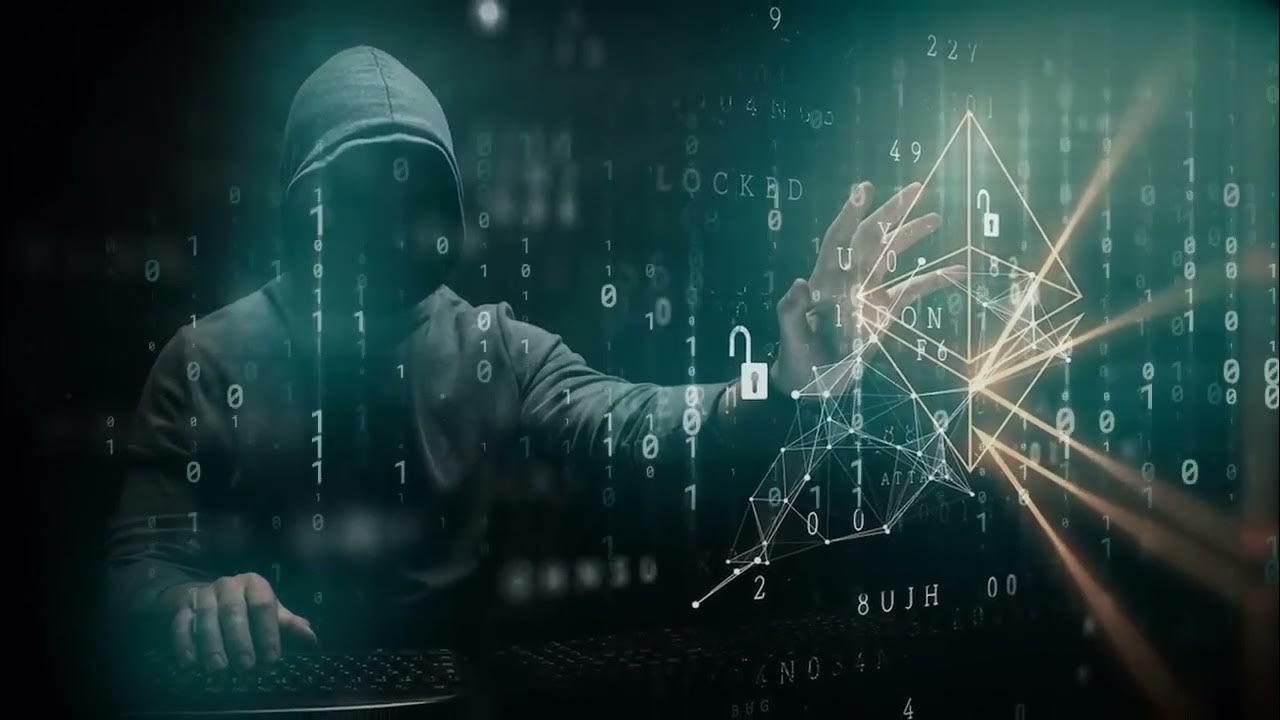An introduction to Blockchain
Summary
TLDRBlockchain is a revolutionary technology that enables secure, decentralized transactions without the need for intermediaries like banks. It uses cryptography and consensus mechanisms to create an immutable chain of blocks, each containing transaction data and a unique hash. This distributed ledger system ensures digital trust and prevents issues like double-spending. Blockchain's potential to transform industries is vast, offering a new way to perform transactions that could reshape the future of finance. The technology provides transparency, security, and efficiency across networks, impacting sectors far beyond just cryptocurrency.
Takeaways
- 😀 Blockchain is a system where transaction records are maintained across multiple computers, or nodes, in a peer-to-peer network.
- 🔐 Each block in a blockchain contains transaction information and a unique hash key, which functions like a fingerprint to identify the block.
- 🔗 Blocks are linked together, with each block containing the hash of the previous block, making the blockchain immutable.
- 📜 Blockchain uses a distributed ledger, meaning that no central authority manages the system. Each node holds a copy of the blockchain history and rules.
- 💡 Consensus is the process by which transactions are validated and added to the blockchain through mining or other consensus mechanisms.
- 🚫 Blockchain enables transactions between parties without the need for a trusted intermediary like a bank, broker, or clearinghouse.
- 💰 With blockchain, two parties can transact directly, reducing the complexity and costs associated with traditional intermediary-driven transactions.
- 🔍 Blockchain prevents 'double spending' by ensuring that once a transaction is recorded, it cannot be undone or altered without breaking the entire chain.
- 🏗️ Blockchain technology has far-reaching impacts across various industries by enhancing security, reducing the need for intermediaries, and increasing transparency.
- 🌐 By using cryptography and consensus methods, blockchain creates an immutable, secure environment for transactions, helping build digital trust.
- 🧠 Blockchain is not just a financial technology but a revolutionary tool that could change how we conduct transactions and store data in the future.
Q & A
What is blockchain?
-Blockchain is a system in which a record of transactions is maintained across multiple computers (nodes) that are linked in a peer-to-peer network. It ensures secure and transparent record-keeping without the need for a central authority.
What are the core components of blockchain?
-The core components of blockchain include cryptography, distributed ledger, and consensus. These elements work together to secure and validate transactions, ensure the integrity of data, and maintain a decentralized network.
How does cryptography work in a blockchain?
-Cryptography in blockchain involves the use of hash keys, which act like unique fingerprints for each block of data. These hashes link the blocks together, making the chain immutable, as any change would require a new hash, breaking the chain.
What is the role of a distributed ledger in blockchain?
-A distributed ledger in blockchain refers to the way transaction records are shared and maintained across multiple nodes. Each node holds a copy of the entire blockchain history, ensuring that all users have access to the same data and that no central authority is needed.
What does consensus mean in the context of blockchain?
-Consensus in blockchain refers to the process by which transactions are validated and added to the blockchain. This involves a series of validation procedures where a transaction is checked against a set of rules, ensuring its validity before it becomes part of the chain.
What is mining in blockchain?
-Mining is the process by which transactions are validated and added to the blockchain through consensus. Miners solve complex cryptographic puzzles to confirm transactions and secure the network, often earning cryptocurrency as a reward.
Why is blockchain considered secure?
-Blockchain is considered secure because it uses cryptographic hashes to link blocks of data, making it nearly impossible to alter past transactions. Additionally, the decentralized nature of blockchain means no single entity controls the system, reducing the risk of fraud or manipulation.
How does blockchain enable trust without intermediaries?
-Blockchain enables trust by using cryptographic validation and consensus mechanisms to authenticate transactions, eliminating the need for intermediaries such as banks or brokers. This allows two parties to interact directly with confidence that the transaction is secure and valid.
What is double spending, and how does blockchain prevent it?
-Double spending refers to the risk of spending the same digital currency more than once. Blockchain prevents double spending by ensuring that every transaction is validated through consensus and recorded immutably, so it cannot be duplicated.
What impact does blockchain have on industries?
-Blockchain has far-reaching impacts across industries, including finance, healthcare, supply chain, and more. It provides a secure and efficient way to handle transactions, improve transparency, reduce costs, and enhance trust between parties in various sectors.
Outlines

This section is available to paid users only. Please upgrade to access this part.
Upgrade NowMindmap

This section is available to paid users only. Please upgrade to access this part.
Upgrade NowKeywords

This section is available to paid users only. Please upgrade to access this part.
Upgrade NowHighlights

This section is available to paid users only. Please upgrade to access this part.
Upgrade NowTranscripts

This section is available to paid users only. Please upgrade to access this part.
Upgrade NowBrowse More Related Video
5.0 / 5 (0 votes)





